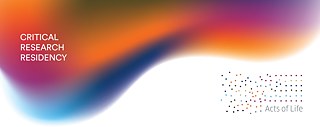Conversation
Landscape after the Politics of Sovereignty - Some Instances from India

Acts of Life: Public Presentation
Inherited from traditions of literary and visual arts that once linked the land to conceptions of national emergence, a people’s futurity and a new century, landscape, today, stands altered in light of our ‘globalist’ conjuncture. How might we receive traditions of landscape, together with the failed promise of the decolonizing nation, in a moment marked by new compacts between the state, international markets and a handful of multinational interests? What transformations in notions of citizenship and place do we encounter when representational practices of twentieth-century landscape are reviewed from the perspective of our own, late liberal imaginary? – one that transforms earlier conceptions of sovereign territory, as well as the materiality of the earth itself, into the topography of unbounded resource extraction? How does the form of the human, once understood through the figure of the rights-bearing subject, appear as populations become managed, increasingly, through ‘big-data’ sets, biometrics, and the juridically uncertain place of the Camp?
This presentation will discuss examples of landscape art and literature originating from the Great Bengal Famine of 1943 – an event that crystalized artistic consciousness through the very failure of politics –through selected instances of contemporary practice in India so as to re-open the question of landscape art to these current concerns.
Limited slots. RSVP through: tinyurl.com/ConversationAoL

About the Speakers
DR. TANIA ROY is Senior Lecturer and Chair of the Graduate Programme in English Literature at the National University of Singapore. She teaches topics in Critical Theory, especially the aesthetic of the Frankfurt School, postcolonial studies and world literature, and trauma studies, and has related research interests in contemporary aesthetic practices from India. She is the author of The Architects of Late Style in India (Routledge, 2019).HUNG DUONG is an independent translator/budding curator/visual researcher based in Ho Chi Minh City, Vietnam. He has had experience translating a variety of materials (textual and oral) for art spaces and cultural centers in Vietnam and Southeast Asia. Most recently, Duong collaborated with the National Gallery Singapore to translate a series of six texts written by artists and critics of Vietnamese modern art. His current interests include, but not limited to: linguistics and comparative literature; translation as a mode of being and understanding visual and cultural production; interethnic relations in Vietnam and Southeast Asia; and historical and sociopolitical networks between Vietnam and the regions of Southeast Asia, Africa, and Latin America.
Details
The Loop
12/F School of Design and Art Campus
De La Salle College of Saint Benilde
950 Ocampo St,
1004 Malate, Manila
+63 2 817 0978
info-manila@goethe.de
Part of series Acts of Life: Public Presentation